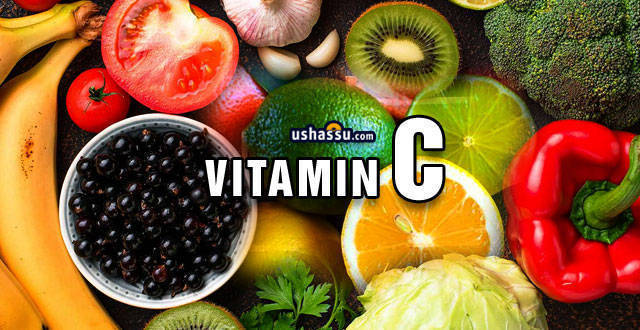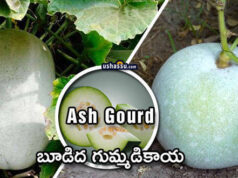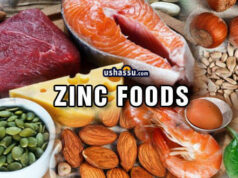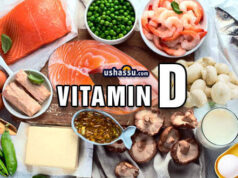Vitamin C, one of the most essential and important nutrient-supplement for a healthy body functioning. L-ascorbic acid is water soluble vitamin and is available in vegetables and fruits.
Vitamin-C is an immune booster, antioxidants present in it boost the immune system by limiting damage of body cell and protect cells from free radicals. It also helps in absorbing and storing iron in your body.
One thing you should know is that body does not produce Vitamin C, you should gain it through diet by eating Vitamin C rich foods like fruits and vegetables or by taking oral supplement. We suggest you to go for natural foods.
Benefits Of Vitamin-C
Vitamin C reduce the risk of getting cold and protect against immune system deficiencies, respiratory infections, helps in curing ageing of skin, Eye deseases, healing wounds, helps in maintaining healthy bones and teeth, bronchitis, stomach ulcers, tuberculosis, dysentery, skin infections, inflammation of the bladder / prostate, tiredness, tuberculosis, prevent toxicity, peptic ulcers, pregnancy complications, Infertility, treating cancer, Joint Pains, Gout, nerve pain, bleeding gums, hypertension – high blood pressure etc.
Below Are List Vitamin C Rich Foods :
List Of Fruits That Contain High Amount Of Vitamin C :
Kakadu Plums : contains 4,500 mg per 100 grams.
Acerola Cherries : Acerola a super fruit which is extremely rich in vitamin C. One cup of acerola cherries contains 1,700mg of vitamin C.
Gooseberry : 100 grams of amla contains 600 mg.
Rose Hips : called as the fruit of rose is rich in nutrients, 100 grams of rose hip fruit contains 426 mg of vitamin C.
Jujube : Dried Jujube contains roughly 300 mg of vitamin C where as Jujube fruit contains 69 mg.
Guava : a super fruit with numerous health benefits, 100 grams of guava fruit contains 228.3 mg of vitamin C.
Blackcurrants : Blackcurrants contains high levels of health promoting micro nutrients, A vitamin-c rich food contains approximately 200 mg.
Mango : naturally high in vitamin C, contains 122.3 mg of vitamin C
Kiwi : a nutrient dense fruit, kiwi fruit contains 92.7 mg
Grapefruit : contains high amounts of water soluble antioxidant. grapefruit, pink and red contains 72 mg.
Lychees : also called as litchi is an extremely healthy fruit contains 71.5 mg.
American Persimmons : contains 66 mg.
Breadfruit : contains a loads of antioxidants, It contains nearly 64 mg of vitamin C.
Papaya : are rich in C-Vitamin and antioxidants, Papaya contains 62 mg.
Abiyuch : is a good source of vitamin-c along with other nutrients. It contains 61.7 mg
Pomelo : fruit conatins vitamins, minerals and antioxidants. It contains 61 mg.
Rowal : is a good source of nutrients, vitamins and minerals. Rowal fruit contains 58.8 mg.
Strawberries : are excellent source of vitamin C, also rich in antioxidants. Strawberry contains 58 mg.
Orange : is popularly known citrus fruit, orange fruit – juice contains 53.2 mg.
Lemon : are rich in vitamins, minerals, phytonutrients and antioxidants. One lemon contains approx. 31 mg of vitamin C and in 100 grams it contains 53 mg.
Elderberries : contains 52.2 mg.
Clementines : contains 48.8 mg.
Pineapple : is packed with antioxidants (vitamin C, beta-carotene etc.). It contains 47.8 mg.
Red Currant : contains 45.9 mg.
Dried Mango : Sweetened or dried mango contains 42.3 mg
White Currant : contains 41 mg.
Carissa : contains 38 mg.
Strawberry Guava : contains antioxidants, antimicrobial agents etc. Cattley Guava contains 37 mg.
Mulberry : contains 36.4 mg.
Custard Apple : are rich in antioxidants (ascorbic acid, carotenoids etc). Sugar Apple contains 36.3 mg.
Cantaloupe : belongs to melon family, excellent source of vitamin C. It contains 36.7 mg.
Starfruit : contains 34.4 mg.
Feijoa : is an excellent source of vitamin-C, 100 grams of Feijoa fruit contains 32.9 mg.
Passion Fruit : is a good source of vitamin C, It contains 30 mg.
Lime : contains 29 mg.
Tangerines : belong to orange family, being a citrus fruit it contains 26.7 mg.
Pitanga : is very good source of vitamin-c, it contains 26.3 mg
Raspberry : Raspberries contains antioxidants, It contains 26.2 mg of Vitamin C.
Sapota : contains 23 mg.
Soursop : contains 20.6 mg.
Durian Fruit : total ascorbic acid in durian is 19.7 mg.
Casaba Melon : contains 18 mg.
Cranberries : Cranberry fruit – juice is a good source of vitamin C, It contains 13.3 mg.
Winter Squash : contains 12.5 mg.
Avocado : contains 10 mg.
Blueberries : contains 9.8 mg.
Watermelon : contains 8 mg.
Grapes : contains polyphenols (antioxidants), It contains 4.8 mg of Vitamin-C.
List Of Vegetables That Contain High Amount Of Vitamin C :
Green Chilli : good source of vitamin C, it contains 242.5 mg.
Sweet Yellow Pepper : an excellent source of vitamin C, 100 grams of Yellow Bell Pepper contains 183.5 mg.
Thyme : contains 160 mg.
Red Chilli : spice is rich in vitamin C, it contains 143.7 mg
Parsley : is an excellent source of vitamin C, it contains 133 mg.
Mustard Spinach : contains more vitamin C than spinach, 100 grams of mustard spinach contains 130 mg.
Red Pepper : Red Bell Pepper contains 127.7 mg of vitamin C. Compared to Green Bell Pepper, Red Bell Pepper contains more vitamin C.
Green Pepper : Green Bell Pepper contains 120 mg of vitamin C.
Kale : contains 120 mg.
Tahitian Taro : are high in fiber and micro nutrients, 100 grams / 1 cup of Taro leaves contain 120 mg of C Vitamin
Banana Pepper : belongs to pepper family and is rich in C-Vitamin. A cup or 125 grams of Banana Pepper contains 103 mg.
Malabar Spinach : contains high amount of antioxidants (beta carotene, lutein). Vine Spinach contains 102 mg.
Broccoli : are loaded with multiple vitamins, minerals, fiber and antioxidants. Broccoli contains 89.2 mg
Brussels Sprouts : are rich in antioxidants, vitamin C etc., It contains 85 mg.
Snow Peas : one of the best immunity booster as it contains 72mg of vitamin-C.
Garden Cress : contains 69 mg.
German Turnip : kohlrabi, its stem are rich source of vitamin-C, it contains 62 mg.
Cabbage : one cup of raw cabbage contains 36.6 mg and cooked cabbage contains nearly 60 mg.
Red Cabbage : one cup of raw Red cabbage contains 57 mg.
Bitter Gourd : is a good source of vitamin C and other nutrients. It contains 55.6 mg.
Cauliflower : is full of nutrients, one cup of chopped and raw cauliflower contains 48.2 mg.
Serrano Chilli Pepper : contains 47 mg.
Bok Choy : contains 45 mg.
Lotus Root : contains 44 mg.
watercress : contains 43 mg.
Green Peas : contains 40 mg.
Collard Greens : contains 35.3 mg.
Spinach : contains 28.4 mg.
Rutabaga : contains 25 mg.
Potatoes : contains 22 mg.
Turnip Greens : contains 21 mg.
Cassava : contains 20.6 mg.
Tomatoes : 100 grams raw tomato contains 20 mg. juice, cooked one contains 18.3 mg.
Beet Greens : contains 14 mg.
Asparagus : contains 5.6 mg.
Colocasia : contains 4.5 mg.
Kidney Bean Sprouts : contains 4.5 mg.
Sweet Potatoes : contains 2.4 mg.
Mustard Greens : contains 2.4 mg.
Average daily recommended vitamin C for adults is 90 mg – men and 75 mg – women.
Below Suggested Daily Intake Of Vitamin C
Kids – Infant (Male, Female) within 0 to 6 months: 40 mg – milligrams per day
Kids – Infant (Male, Female) within 7 to 12 months: 50 mg – milligrams per day
Children (Male, Female) 1 to 3 years: 15 mg – milligrams per day
Children (Male, Female) 4 and 8 years: 25 mg – milligrams per day
Children (Male, Female) 9 to 13 years: 45 mg – milligrams per day
Females 14 to 18 years: 65 mg – milligrams per day
Males 14 to 18 years: 75 mg – milligrams per day
Females 19 and over: 75 mg – milligrams per day
Males 19 and over: 90 mg – milligrams per day
Pregnant women: 85 mg – milligrams per day
Breastfeeding mother’s: 120 mg – milligrams per day
Note : A high intake of vitamin C ie. over 1000/2000 mg a day may cause health problems, be cautious as any thing over is dangerous. Here we are providing information only, please speak to your doctor or nutritionist and take nutrient supplements under his / her guidance.














